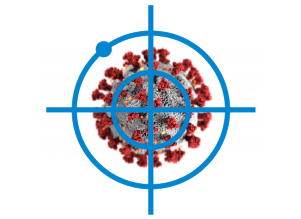 On December 17, 2021, argenx SE announced that the US Food and Drug Administration approved VYVGARTô (efgartigimod alfa-fcab) for the treatment of generalized myasthenia gravis (gMG) in adult patients who are anti-acetylcholine receptor (AChR) antibody positive. Efgartigimod is an IgG1 Fc fragment designed for increased affinity for the neonatal Fc receptor (FcRn). It competes with IgG to occupy FcRn and reduce overall IgG recycling. Efgartigimod was derived from the ABDEG (antibodies that enhance IgG degradation) technology developed by Prof. Sally Ward and colleagues.
On December 17, 2021, argenx SE announced that the US Food and Drug Administration approved VYVGARTô (efgartigimod alfa-fcab) for the treatment of generalized myasthenia gravis (gMG) in adult patients who are anti-acetylcholine receptor (AChR) antibody positive. Efgartigimod is an IgG1 Fc fragment designed for increased affinity for the neonatal Fc receptor (FcRn). It competes with IgG to occupy FcRn and reduce overall IgG recycling. Efgartigimod was derived from the ABDEG (antibodies that enhance IgG degradation) technology developed by Prof. Sally Ward and colleagues.
FDA’s approval of VYVGART is based on results from the global Phase 3 ADAPT trial, which met its primary endpoint. Trial results demonstrated that significantly more anti-AChR antibody positive gMG patients were responders on the MG-ADL scale following treatment with VYVGART compared with placebo (68% vs. 30%; p<0.0001). There were also significantly more responders on the Quantitative Myasthenia Gravis (QMG) scale following treatment with VYVGART compared with placebo (63% vs. 14%; p<0.0001).
Marketing authorization applications for efgartigimod for the treatment of gMG are currently under review in Japan and the European Union, with anticipated decisions in the first quarter and second half of 2022, respectively.




